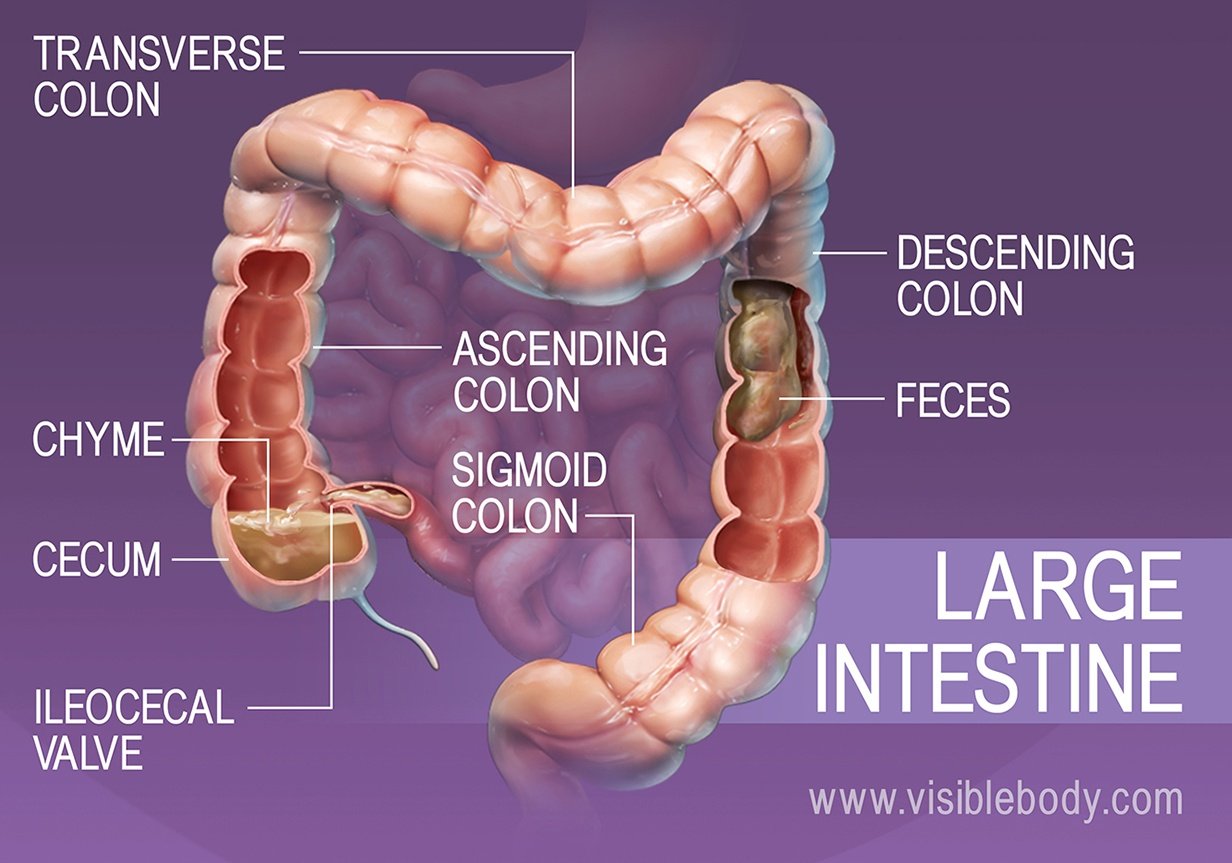Gases that build up in your large intestine cause flatulence and it usually takes about 30 to 45 minutes for them to pass through your system

Gases that Build up in Your Large Intestine Cause Flatulence
Flatulence, commonly known as passing gas or farting, can sometimes be an embarrassing bodily function. However, it is actually a normal and natural process that occurs in everyone’s digestive system. Flatulence is caused by the buildup of gases in the large intestine, and it usually takes about 30 to 45 minutes for them to pass through your system.
When we eat, our bodies break down the food in the stomach and small intestine. However, not all of the food we consume can be fully digested and absorbed by the body. The undigested food particles then move into the large intestine, also known as the colon, where they are broken down by bacteria.
As the bacteria break down the undigested food, they produce gases such as hydrogen, methane, and carbon dioxide. These gases can build up in the large intestine, causing the sensation of bloating and eventually leading to flatulence.
During the process of gas build-up, the individual may feel uncomfortable and experience symptoms like bloating or mild to moderate abdominal pain. However, passing gas is a natural way for the body to relieve this discomfort. Most gases are eliminated during normal bowel movements.
Image Sources:
To understand why gases take around 30 to 45 minutes to pass through the system, we need to consider the digestive process. Food travels through your digestive system at different rates. After chewing and swallowing, food enters the stomach, where it is mixed with digestive juices and turned into a semi-liquid state called chyme. From the stomach, chyme moves into the small intestine where most of the absorption of nutrients takes place.
The small intestine is about 6 meters (20 feet) long and takes several hours for chyme to travel through. It is in the small intestine that the majority of nutrients from the food we eat are absorbed into the bloodstream. After the absorption process, the semi-solid waste known as feces moves into the large intestine.
Upon reaching the large intestine, the remaining undigested food particles, water, and electrolytes are further processed and prepared for elimination. This is where the gas buildup mainly occurs, leading to flatulence. The gases released during this process take time to travel through the long and winding path of the large intestine before being expelled as a fart.
Flatulence is a normal occurrence in the digestive process and helps to alleviate discomfort caused by gas buildup. However, excessive flatulence or chronic flatulence could be a sign of an underlying digestive issue such as irritable bowel syndrome (IBS), lactose intolerance, or celiac disease.
If you experience persistent digestive symptoms, it is advised to consult a healthcare professional to rule out any potential underlying conditions. Maintaining a balanced diet, avoiding foods that may cause excessive gas production, and managing stress levels can also help reduce flatulence.
So, the next time you feel gassy and need to pass gas, remember that it’s a natural and necessary process. Just give it some time, and those gases will eventually make their way through your system, providing you relief from discomfort.
 Image by Positive Health Wellness
Image by Positive Health Wellness
 Image by Visible Body
Image by Visible Body
Tags
Share
Related Posts
Quick Links
Legal Stuff

